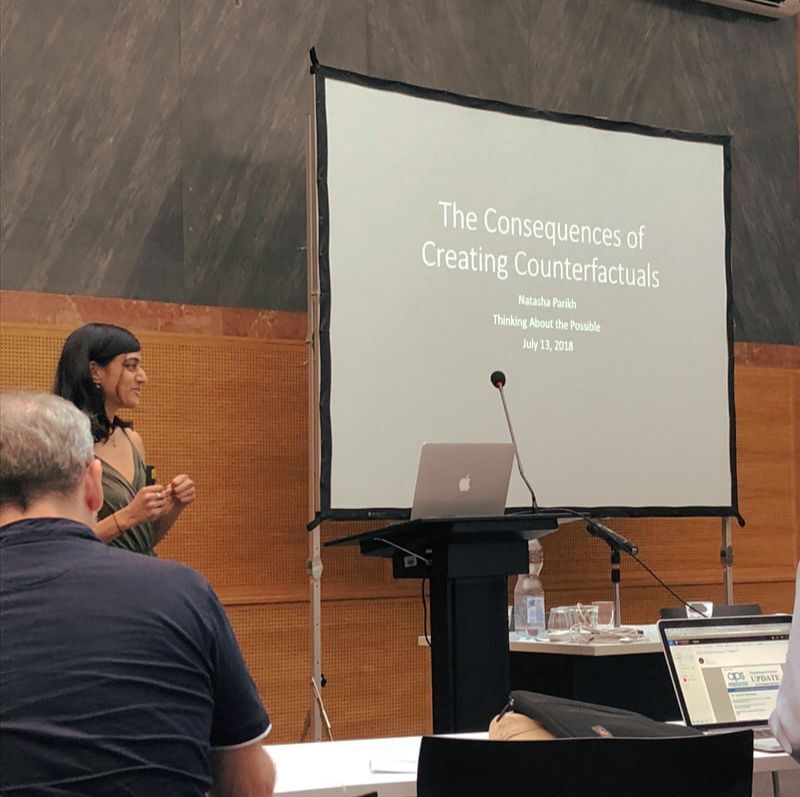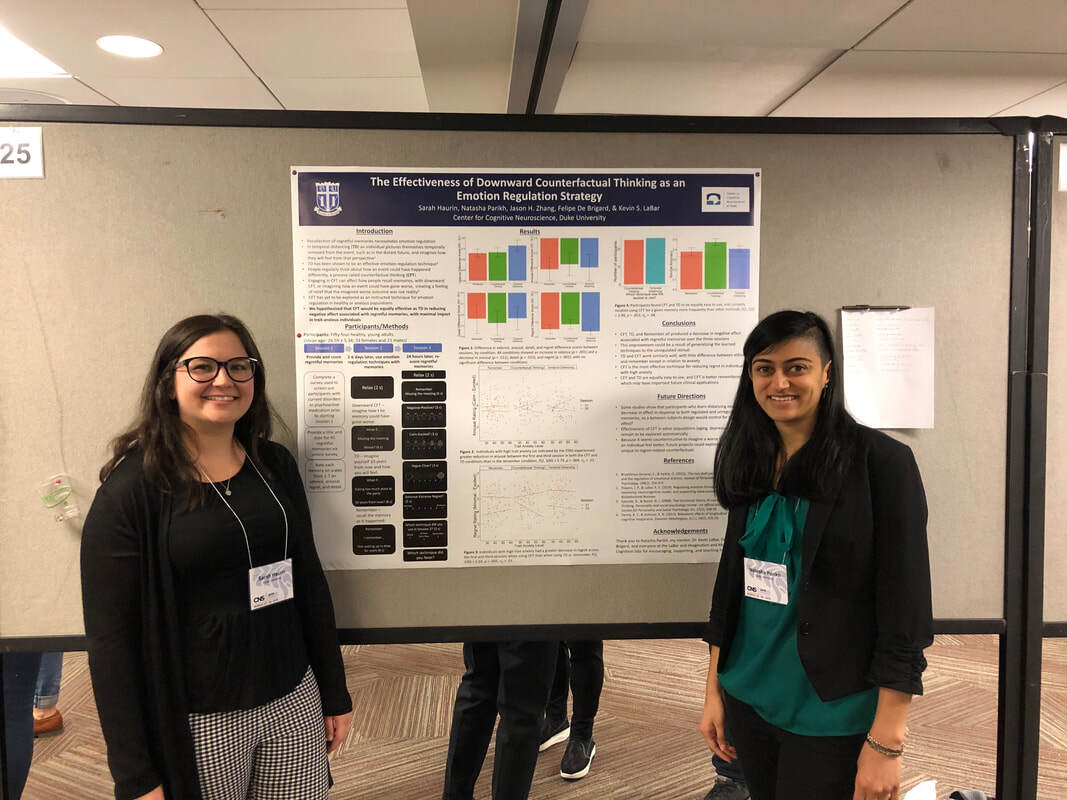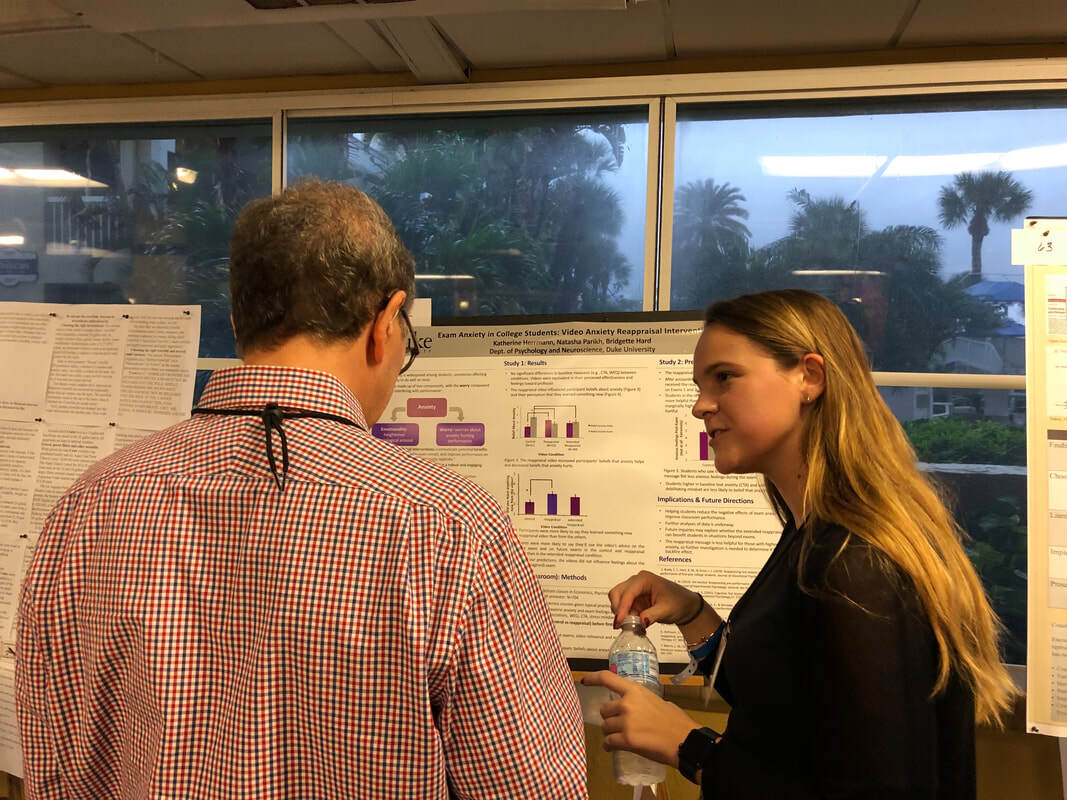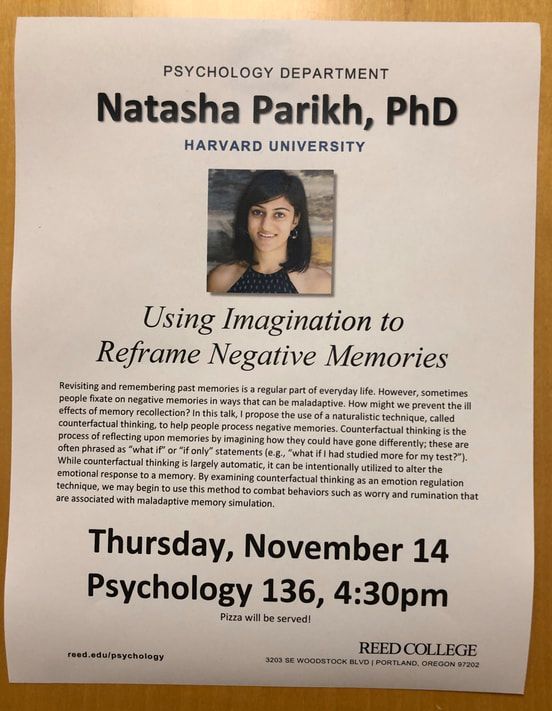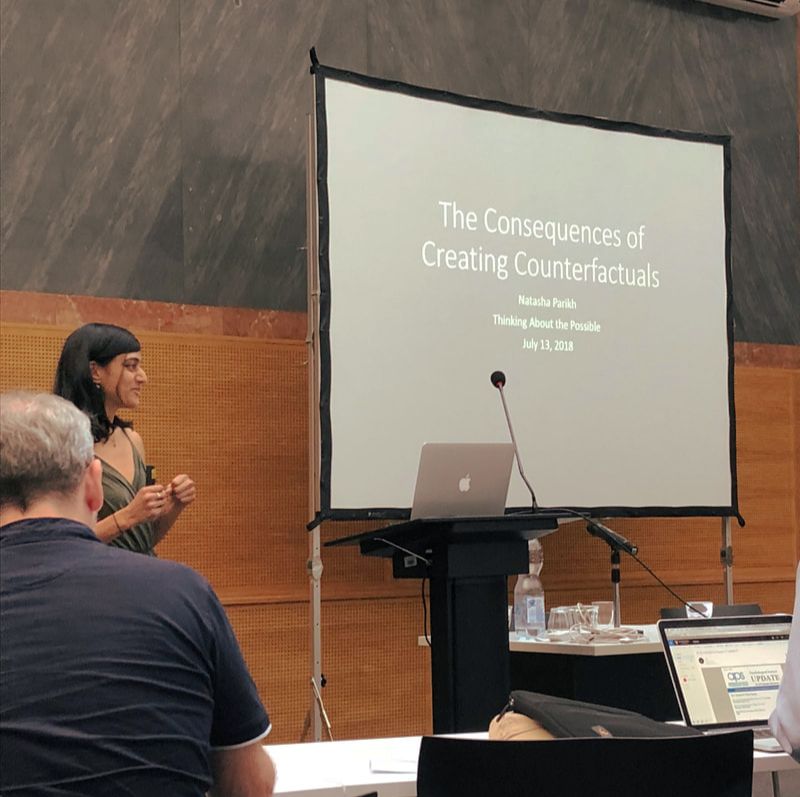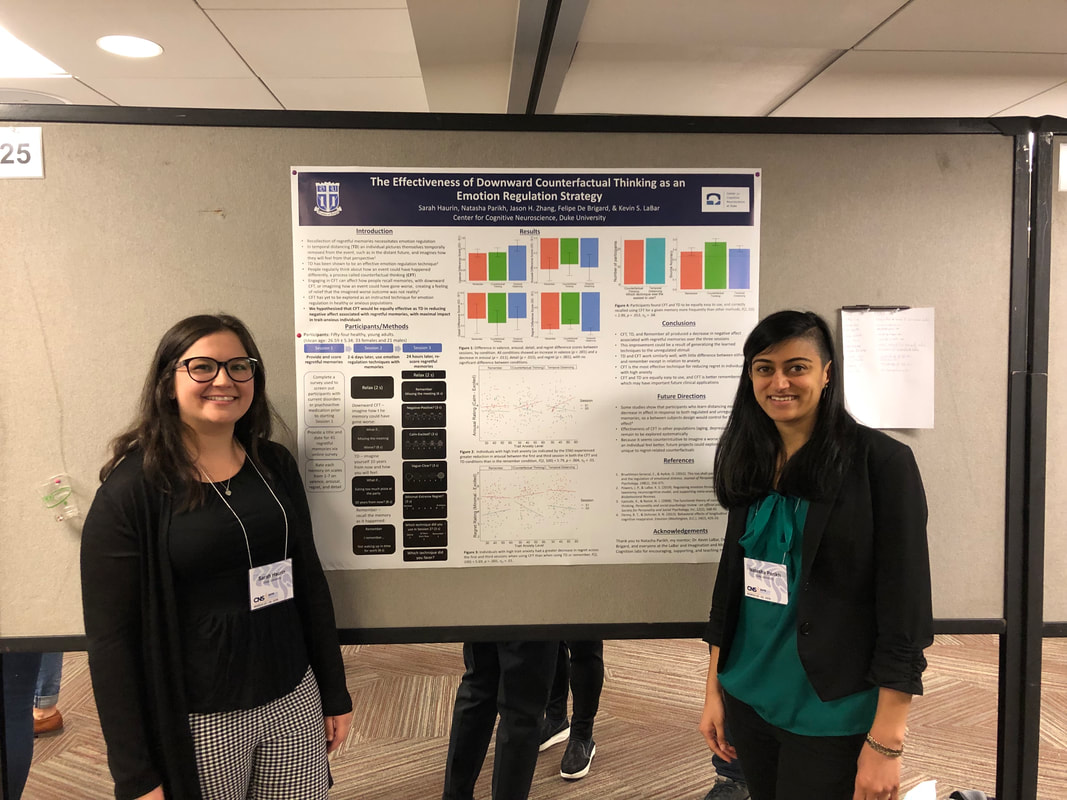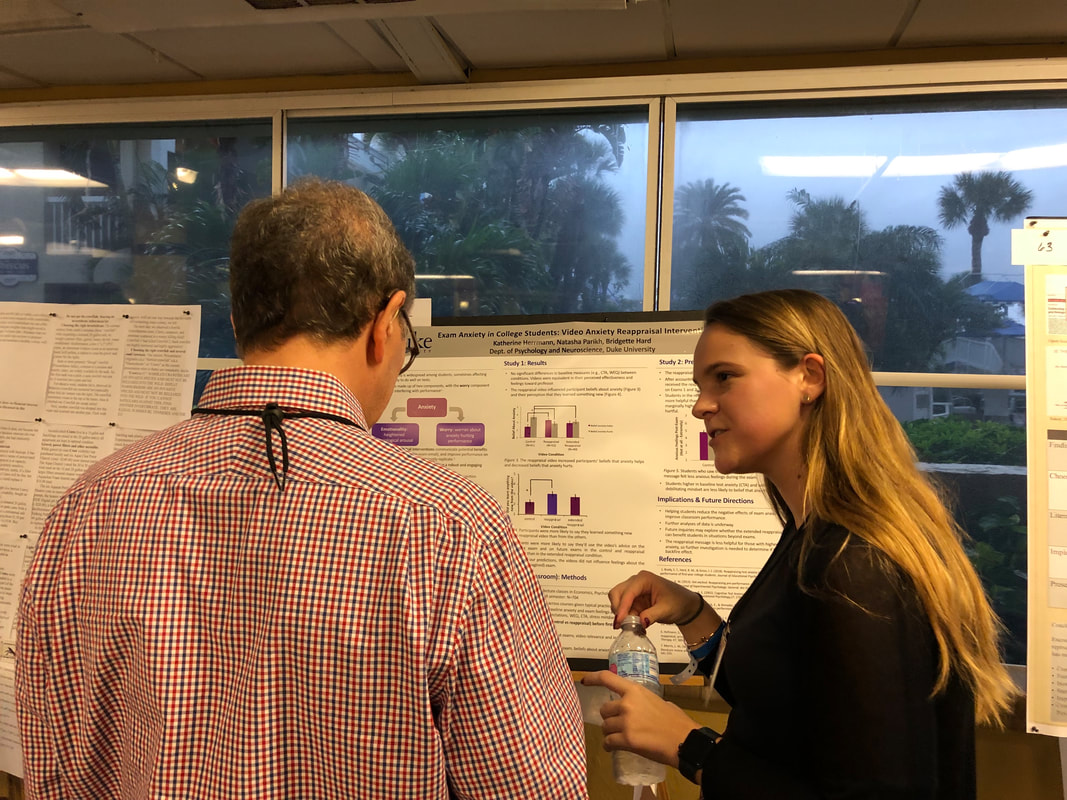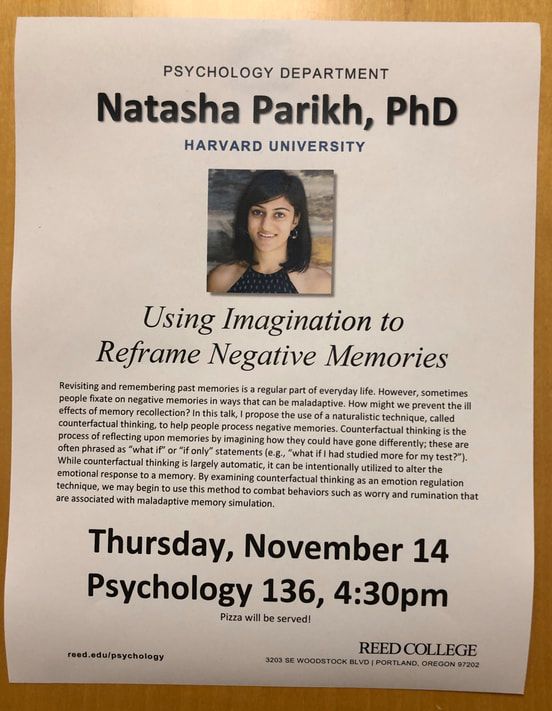Memory modification via emotion regulation
Work in the emerging area of memory modification has shown that by partially reminding people of an event, the associated reactivated memory enters a labile state and, for a period of time, can be manipulated before it is consolidated again. When we think about a memory, there is a possibility that we update the information from the memory that we re-store if the memory is manipulated during this time. For example, when thinking about how to translate a word into Spanish, if taught the French translation, you may remember the French word instead of the Spanish one when you try to remember it later. While this may hurt our ability to remember facts, it may help us change the emotions associated with a memory. Using emotion regulation techniques, I am interested in manipulating the negative emotions we feel during traumatic memories by modifying them while they are active.
Selected publications
- Parikh, N., McGovern, B., & LaBar, K.S. (2019). Spatial distancing reduces emotional arousal to reactivated memories. Psychonomic Bulletin and Review. 26(6), 1967-1973. PDF
- Stanley, M.L., Parikh, N., Stewart, G.W., & De Brigard, F. (2017). Emotional intensity in episodic autobiographical memory and counterfactual thinking. Consciousness and Cognition, 48, 283-291. PDF
Counterfactual thinking & anxiety
Humans often wonder about how events could have gone differently. What if I had studied more for my exam? If only the pop quiz were a week earlier! When done in excess, this phenomenon appears as rumination and can be detrimental. How can we alter the way in which we re-imagine events, and can this reframing especially help people with anxiety? I am interested in the emotional consequences of creating what-if scenarios and how creating worse what-ifs can help us look at the positives of an event.
Selected publications
- Parikh, N., LaBar, K. S., & De Brigard, F. (2020). Phenomenology of counterfactual thinking is dampened in anxious individuals. Cognition and Emotion, 1-9. PDF
- De Brigard, F. & Parikh, N. (2018). Episodic counterfactual thinking. Current Directions in Psychological Science. 28(1), 59–66. PDF
- Parikh, N., Ruzic, L., Stewart, G.W., Spreng, R.N., & De Brigard, F. (2018). Neural effects of episodic and semantic counterfactual thinking. NeuroImage, 178, 332-345. PDF
Selected photos across research areas
